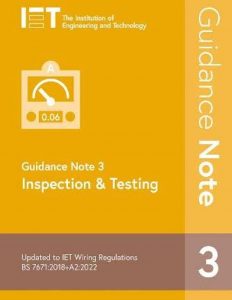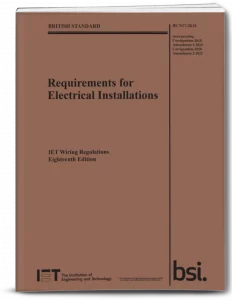The City & Guilds 2391-51 Level 3 Award in Periodic Inspection and Testing of Electrical Installations is a two-day professional qualification designed for electricians who inspect, test, and report on existing electrical systems.
The course builds the knowledge and practical skills needed to carry out Electrical Installation Condition Reports (EICRs) with confidence, ensuring installations comply with BS 7671:2018 + Amendment 3 (2024) and meet all relevant safety regulations. Training includes a blend of theory and hands-on practical assessments to fully prepare you for real-world inspection and testing work.















